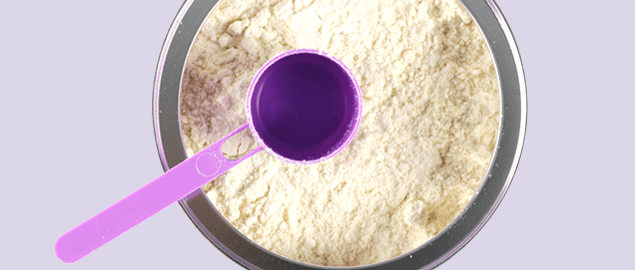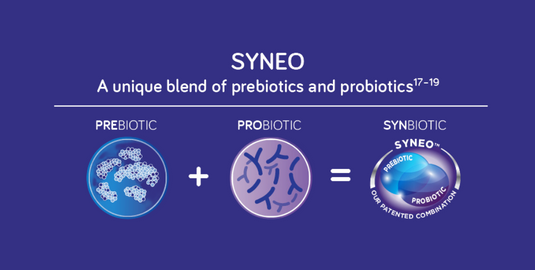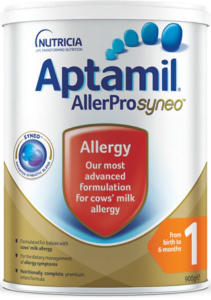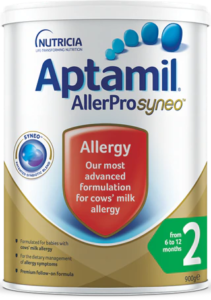Inside The Tin: A Guide To Infant Formula For The Management Of Cows’ Milk Protein Allergy
Nutritional support in early life is an essential part of the clinical management of infants with food allergies, such as cows’ milk protein allergy (CMPA). Several different types of infant formulas — such as extensively hydrolysed, plant-based (soy, rice) and amino acid-based formulas — are available to manage CMPA. How do you select the most appropriate one? Do we need to think beyond just controlling symptoms?

To learn more about the types of infant formula for the management of CMPA, view the article for further information.
For an overview of the treatment guidelines for diagnosed CMPA, read our article on Demystifying cows’ milk protein allergy
Read articleIn recent years, there has been a paradigm shift in how cow’s milk protein allergy (CMPA) is managed. Previously, the goal was to achieve symptom relief with a focus on allergen avoidance. More recently research has focused on additional nutritional factors that support the gut microbiota and immune system, such as] prebiotic oligosaccharides, synbiotics and lactose.1,2,3
Breastfeeding is recommended for the multiple benefits it brings to the mother and the child and should be continued where possible.4

For an overview of advancement in the management of cow’s milk protein allergy (CMPA) view the article for further information
Nutricia Global Virtual Conference
Featuring 60 international experts, the conference covered a range of topics including education and insight into innovative approaches to understanding and managing CMPA in infants. Sign up to receive content from the Nutricia Global Conference.
Learn more- ASCIA. Guide for Milk Substitutes in Cow’s Milk Allergy. Available at: www.allergy.org.au/images/stories/pospapers/ ASCIA_HP_Guide_CMA_Milk_Substitutes_2020.pdf
- Kemp et al. Med J Aust. 2008;188(2):109–112.
- ASCIA HP Information Paper. Nutritional Management of Food Allergy. September 2013.
- ASCIA. Cow’s Milk (Dairy) Allergy. Available at: www.allergy.org.au/images/pcc/ ASCIA_PCC_Cows_milk_dairy_allergy_2019.pdf (accessed April 2021).
- Sackesen C et al. Front Pediatr 2019;7:372.
- RACP. Paediatric Policy: Soy Protein Formula. November 2006.
- Walsh J et al. Br J Gen Pract 2016;66:e609–11.
- Preece K et al. N Z Med J 2016;129:78-88.
- D’Auria E et al. Nutrients 2019;11:1399.
- NHMRC. Eat for health. Infant Feeding Guidelines. Information for health workers. December 2012.
- Carucci l et al. Front Pediatr 2020;8:440.
- Sánchez‐Valverde F et al. Allergy 2009;64(6):884–9.
- Prescott SL, Tang M. Position Statement: Allergy prevention in children. ASCIA, October 2004.
- Berni Canani R et al. ISME J 2016;3:42–50.
- Ling Z et al. Appl Environ Microbiol 2014;80:2546–54.
- Thompson-Chagoyan OC et al. Pediatr Allergy Immunol 2010;21:e394–400.
- Candy DCA et al. Pediatr Res 2018;83:677–86.
- Fox AT et al. Clin Transl Allergy 2019;9:5.
- Van der Aa LB et al. Clin Exp Allergy 2010;40:795–804.
- Łoś-Rycharska E et al. Gastroenterology Rev 2016;11:226–31.
- Burks W et al. J Pediatr 2008;2:P266–71.
- van den Elsen LWJ et al. Clin Exp Allergy 2013;43:798–810.
- Hoppenbrouwers T et al. Front Immunol 2019;10:1118.
Support for you and your patients
Join now and learn about our education events, research initiatives and evidence-based resources – furthering your professional development and clinical practice.
Support for you and your patients
Support for you and your patients
Join now and learn about our education events, research initiatives and evidence-based resources – furthering your professional development and clinical practice.





